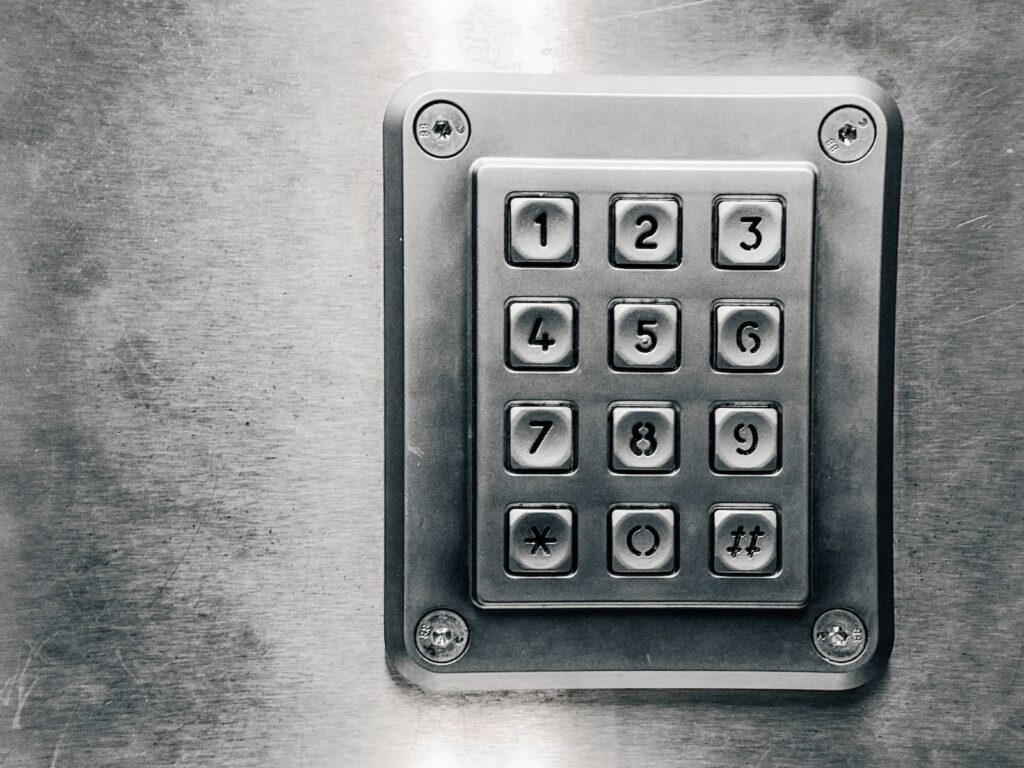One of the key strategies for success for any enterprise is a commitment to and investment in security. There are many facets of your company that require your undivided attention. The following is a list of security measures that should be implemented at your company:
Secure Your Physical Store

You can stop worrying about theft and break-ins at your store if you install high-quality security measures. Get an alarm system installed first and foremost. The best alarm system is highly context-dependent; for example, a high-end jewellery store will require a very different alarm than a coffee shop. Moreover, your security features might need an upgrade if you decide to shopfit your business anew.
When recommending an alarm system, companies such as MJ Flood Security will send someone to your location to inspect it and make recommendations. You should look around until you find a solution that works for you. Cameras placed strategically around the building can deter thieves.
Create Smart Passwords

Have you turned on two-factor authentication for your most crucial programs? If not, then you should probably take a seat and get things organized. Two-factor authentication, or multi-factor authentication, is an extra layer of security that necessitates more than one form of verification before gaining access. To log in to many websites and apps, you will need to receive a text message with an additional code.
In addition, you need to use secure passwords and remember them. All of your business’s passwords, including those for physical doors and email, should be changed on a regular basis. This includes taking other precautions, such as using secure passwords. A secure password consists of at least eight characters including both upper and lower case letters, numbers, and symbols.
Use the Cloud
It’s not a good idea to keep private data on your computer. In the event that your computer is stolen or lost, everything is still accessible. It’s safer to store company files in the cloud, where they can be protected by multiple layers of encryption (i.e., very secure).
Educate Yourself on Payments Best Practices
Make sure you and your staff are well-versed in the proper methods for processing credit card payments. As a corollary, it is wise to stay abreast of the developments in the field of payment systems.
Allow Employees to Have Varying Degrees of Access
Avoid making everyone an administrator in your company’s systems. Your most confidential business data should only be accessible by those who have earned your trust. You can control who within your organization has access to what via granular permissions.
The continued prosperity of your company hinges on your ability to maintain a secure environment. You can rest easier if you follow these suggestions.
Develop a Crisis Management Strategy
Developing and implementing a crisis management strategy is the first step toward protecting your business. A crisis management plan is a written document that outlines how you will deal with any emergency situation or disaster, both internally and externally, should it occur. Your plan should also include what you would do if your company were to be affected by an act of terrorism, pandemic or catastrophic weather event.
Your crisis management strategy should cover all areas of potential concern for your business: fires and floods (external); internal fraud; employee theft; health scares involving food products; financial issues caused by natural disasters like hurricanes, tornadoes and earthquakes (all external); data breaches resulting from hacking attacks on the Internet (internal).
Once you’ve thought through all possible scenarios that could befall your business—and their effects on its operations—use them as points of reference while creating specific plans for each type of event.
Make Sure you Have the Right Insurance
It’s important that you have the right insurance for your business. Insurance can help protect you from many types of losses, including property damage or theft, liability exposure, and potential lawsuits.
Insurance can also help you recover from unexpected events that could result in financial loss—and that could ultimately put your business at risk. For example, if a fire burns up all your equipment in the middle of a busy season, having insurance would be a lifesaver!
Check out our business owner’s guide to security technologies, too.



